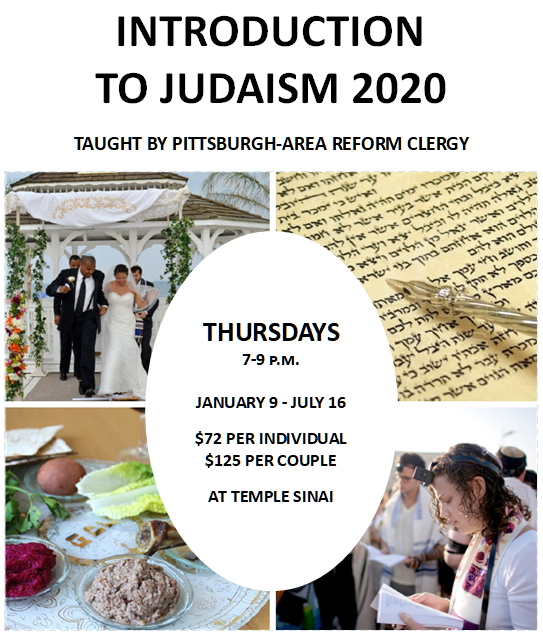Added September 2022
Elul Study: A Storied Approach to the High Holy Days
Thursdays at 7 p.m. (Sept. 1, 8, 15, and 22)
Online only at www.templedavid.org/athome
Each week we will use a short story or text to discuss in preparation for the High Holy Days.
Sept. 1: Rabbi Simchah Bunim of Peshischa used to tell his followers:
There was a poor Jew named Yankel from Galicia who dreamed that there was gold under a bridge in Prague, hundreds of miles away. After much thought and anguish, he decided to saddle his horse and head off alone from his house in search of that gold, which would sustain him for the rest of his life. Yankel got to Prague and found that the bridge about which he dreamed several times was heavily guarded. With no idea what else to do, he simply went underneath the bridge with a shovel and began to dig. Before he broke ground, however, he felt a tap on the shoulder. Yankel turned around and saw a soldier glaring intimidatingly at him. “What are you doing?” said the soldier. Knowing that any evasion was useless, Yankel said, “I dreamed that there was a chest of gold buried here, and I am hoping that it could sustain me and the rest of my family for the remainder of my life.” The soldier stared at Yankel with disbelief. “You will not find any treasure here, but I dreamed that there was a large pot of gold under the stove of a poor Jew called Yankel!” Yankel looked at the soldier and said, “I am Yankel!” He rushed back to his house, removed the stove, and began digging. Lo and behold, after a half hour, he found a large chest filled with gold, which helped sustain his family for the rest of his life.
(As told in The Book of Proverbs: A Social Justice Commentary by Rabbi Dr. Shmuly Yanklowitz)
Sept. 8: Rabbi Samson Raphael Hirsch, the leader of 19th century Germany Orthodoxy, surprised his students one day when, as he neared the end of his life, he insisted on traveling to Switzerland. Perplexed, his students asked him why such a journey was so important to him. In response, he explained, When I stand shortly before the God, I will be held answerable to many questions. But what will I say when God asks–and God is certain to ask–“Shimshon, did you see my Alps?”
Sept. 15: The Sassover Rebbe entered a hotel and sat beside two local peasants. As the two peasants sat at the bar and drank, they began to fall into a drunken stupor. One turned to his friend and said, “Tell me, friend, do you love me?” His colleague responded, “Of course I love you. We’re drinking companions. Naturally I love you.” Then the first one said to his friend, “Then tell me, friend, what causes me pain?” His colleague said, “How should I know what hurts you? I’m just your drinking buddy.” He said, “If you loved me, you would know what causes me pain.” (Same source as above.)
Sept. 22: A prince goes insane and believes that he is a rooster. He takes off his clothes, sits naked under the table, and pecks at his food on the floor. The king and queen are horrified that the heir to the throne is acting this way. They call in various sages and healers to try and convince the prince to act human again, but all in vain. Then a new wise man comes to the palace and claims he can cure the prince. He takes off his clothes and sits naked under the table with him, claiming to be a rooster, too. Gradually the prince comes to accept him as a friend. The sage then tells the prince that a rooster can wear clothes, eat at the table, etc. The rooster Prince accepts this idea and, step-by-step, begins to act normally, until he is completely cured.
What Happens After I Die…in Heaven and…on Earth
Thursdays, October 20 and November 3 at 7:30 p.m.
Visit www.templedavid.org/athome for the Zoom links
Session 1, October 20: What Happens After I Die…in Heaven?
We will engage with Jewish beliefs about what happens after we die including: Do we believe in heaven and hell? What happens to our souls? Do Jews believe in resurrection? We will also link Jewish beliefs about death and afterlife to burial and mourning practices.
Session 2, November 3: What Happens After I Die…on Earth?
As we talk about end-of-life decisions and burial and mourning choices, Ralph Schugar Funeral Home directors will join us. Questions will be answered such as: What is a green Jewish funeral? Can I and my non-Jewish spouse be buried together? What does Judaism say about cremation? All questions will be welcome.
Please join us for both sessions.

We hope you will join us for all four sessions
Sunday, October 30, 4-5 p.m.
The Lights of Our Sanctuaries–Join in for guided tours of and dialogue about the lights in our sanctuaries by Rev. Lindsay White and Rabbi Barbara Symons. (Only on Zoom.)
Sunday, November 6, 4-5 p.m.
The Light of Christ–Join in dialogue guided by Rev. Lindsay White about the power of light as it emanates from belief in Jesus Christ. This in-person event at Crossroads Presbyterian Church (2310 Haymaker Road) will include questions and answers as well as intentional dialogue with neighbors. (We highly encourage you to be in person for this event.)
Sunday, November 13, 4-5 p.m.
The Light of Torah–Join in dialogue guided by Rabbi Barbara Symons about the power of light as it emanates from the Torah. This in-person event at Temple David (4415 Northern Pike) will include questions and answers as well as intentional dialogue with neighbors. (We highly encourage you to be in person for this event.)
Monday, November 21–Time and Location to be announced
(This optional event is highly recommended.)
Interfaith Thanksgiving Celebration–Our cohort will join together for a special Thanksgiving celebration one hour prior to the Monroeville Interfaith Ministerium Thanksgiving Service. Our time together will be reflective of the power of our shared light.
Please RSVP by October 26 at https://tinyurl.com/2s3ahavk
Please direct your questions to:
Rev. Lindsay White LWhite@CrossRoadsPresbyterian.com or
Rabbi Barbara Symons rabbi@templedavid.org

Added August 2022
Elul Study:
A Storied Approach to the High Holy Days
Online Only on Thursdays, September 1, 8, 15, and 22 from 7-7:30 p.m.
Each week we will use a short story or text to discuss in preparation for the High Holy Days which will appear in the Next Ten Days E-Mails. Here is the text for September 1:
Rabbi Simchah Bunim of Peshischa used to tell his followers:
There was a poor Jew named Yankel from Galicia who dreamed that there was gold under a bridge in Prague, hundreds of miles away. After much thought and anguish, he decided to saddle his horse and head off alone from his house in search of that gold, which would sustain him for the rest of his life. Yankel got to Prague and found that the bridge about which he dreamed several times was heavily guarded. With no idea what else to do, he simply went underneath the bridge with a shovel and began to dig. Before he broke ground, however, he felt a tap on the shoulder. Yankel turned around and saw a soldier glaring intimidatingly at him. ‘What are you doing?’ said the soldier. Knowing that any evasion was useless, Yankel said, ‘I dreamed that there was a chest of gold buried here, and I am hoping that it could sustain me and the rest of my family for the remainder of my life.’ The soldier stared at Yankel with disbelief. ‘You will not find any treasure here, but I dreamed that there was a large pot of gold under the stove of a poor Jew called Yankel!’ Yankel looked at the soldier and said, ‘I am Yankel!’ He rushed back to his house, removed the stove, and began digging. Lo and behold, after a half hour, he found a large chest filled with gold, which helped sustain his family for the rest of his life.
As told in The Book of Proverbs: A Social Justice Commentary by Rabbi Dr. Shmuly Yanklowitz.
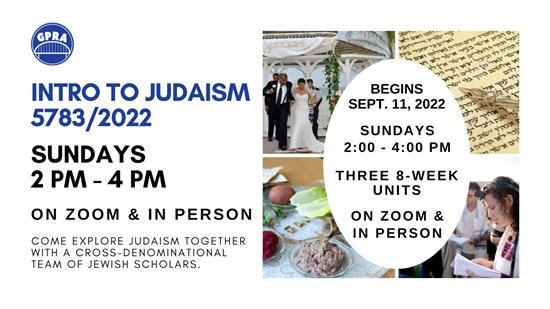
For description, fees, and to register:
Visit https://tinyurl.com/29ybucbk
Questions?
Please contact Rabbi Mark Asher Goodman at mgoodman@bethshalompgh.org.
Added July 2022

Over the course of nine months, we will compare religions including Catholicism, Protestantism, Islam, Baha’i Faith, Buddhism, and Hinduism to Judaism using original texts and often hearing directly from representatives of those faiths. Optional articles to read and questions for consideration will be sent in advance of each class.
Register for either Sunday mornings (11:15 a.m.) or Wednesday evenings (7:30 p.m.)
and as long as there are at least 6 people enrolled per day,
if you have a conflict, you can switch to the other date that month.

Fees:
$36 for first person in a Temple-member household
$44 for first person in a non-member household
$11 per each additional person (member on non-member)
Questions? Please contact Rabbi Symons.
Download the registration form:
www.templedavid.org/bulldocs/5782/2022nine.pdf
Added May 2022
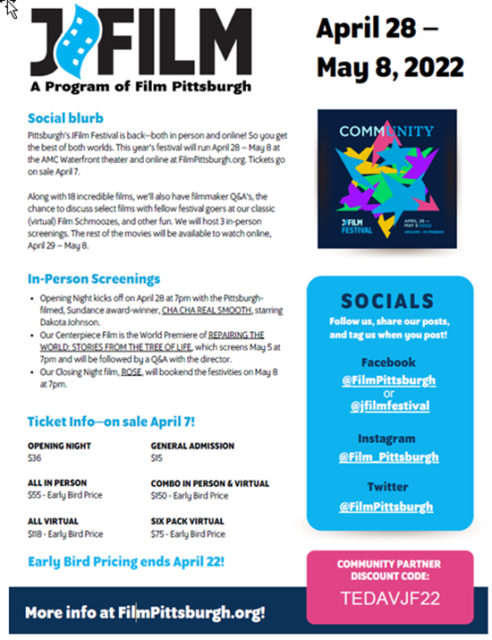
Details and Registration:
Added April 2022
Who Knows One? An Omer Study
Online on Thursdays, April 21, 28; May 5, 12, 19, 26; June 2
6:30-7 p.m. via www.templedavid.org/athome
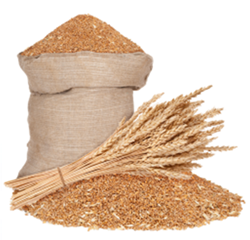
As we count the Omer, a ritual link between the freedom that Pesach celebrates and the covenant that Shavuot celebrates, we count forward each night: today is “Day 1 of the Omer.”
This year, we will count each week with a short study session focused on each of the numbers from 1-7.
Added July 2021
Over the course of nine months, we will look at watershed moments in Jewish history—moments that were a turning point. Using texts, first-hand documentation, archeology, and poetry, our interactive sessions will include: Abraham’s Call, First and Second Temples, Dark Ages and the Light of Mystics, and Shoah to Statehood. Join us!
Register for either Sunday mornings (11:15 a.m.) or Wednesday evenings (7:30 p.m.)
and as long as there are at least 6 people enrolled per day,
if you have a conflict, you can switch to the other date that month.
In-Person and On Zoom
Fees: $36 for first person in a Temple-member household
$44 for first person in a non-member household
$11 per each additional person (member on non-member)
Questions? Please contact Rabbi Symons.
Click here for registration form:
www.templedavid.org/bulldocs/5782/2021watershed.pdf
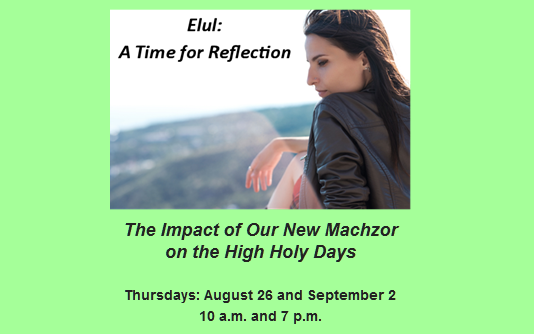
Thursdays: August 26 and September 2
10 a.m. and 7 p.m.
In-Person and On Zoom (www.is.gd/tdathome)
How does a machzor guide our High Holy Day experience?
Let’s take a look using our new machzor Mishkan HaNefesh.
Published March-April-May 2021
Come to One, Some, or All!
On Zoom at www.templedavid.org/athome
- April 1 – Enthusiasm: cultivating and applying positive energy
- April 8 – Equanimity: how to bring calmness to the soul
- April 15 – Patience: the tools we need to stay the course
- April 22 – Gratitude/Moderation: recognizing our abundant blessings
- April 29 – Integrity/Truth: being authentic in our thoughts and actions
- May 6 – Responsibility/Humility: being proactive yet remaining humble
- May 13 – Awe: allowing ourselves to experience wonder
1. Mussar is the study of middot–fine tuning our character traits
2. The period of the Omer refers to an ancient grain offering between Pesach and Shavuot
Published July – September 2020

Reform Judaism has long called itself “Prophetic Judaism” yet the haftarah is the primary place we encounter the prophets other than a well known phrase such as “What is it that G-d desires of you but to do justly and to love mercy, and to walk humbly with your G-d” (Micah 6:8). The Haftarah is ten or more verses from the Prophets (N’vi-im) section of the Hebrew Bible that links either with the Torah portion or with the holiday cycle. Yet if you are not at Shabbat or Festival worship, or even if you are and no context is given, the prophets remain a mystery to us. As Rabbi Abraham Joshua Heschel writes in his book The Prophets, “The prophet is not only a prophet. He is also poet, preacher, patriot, statesman, social critic, moralist.”
Join this class and together we will get to meet the prophets.
Register for either Sunday mornings (11:30 a.m.) or Wednesday evenings (7 p.m.)
and as long as there are at least 6 people enrolled per day,
if you have a conflict, you can switch to the other date that month.
Sundays at 11:30 a.m.:
09/13, 10/18, 11/08, 12/13, 01/10/2021, 02/14, 03/14, 04/11, 05/02
Wednesdays at 7 p.m.:
09/16, 10/21, 11/11, 12/16, 01/13/2021, 02/17, 03/10, 04/14, 05/05
Fee: $36 for first person in a household; $11 per each additional person.
Questions? Please contact Rabbi Symons.
Published January 2020
Contact Debbie Haber or 412.421.7039
or register online at www.templesinaipgh.org




